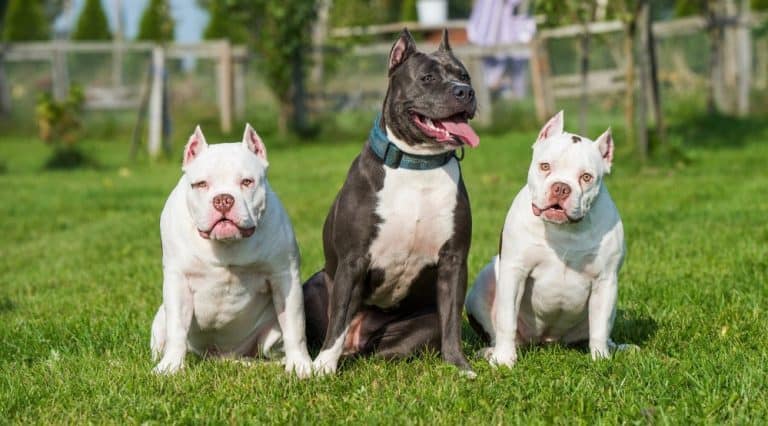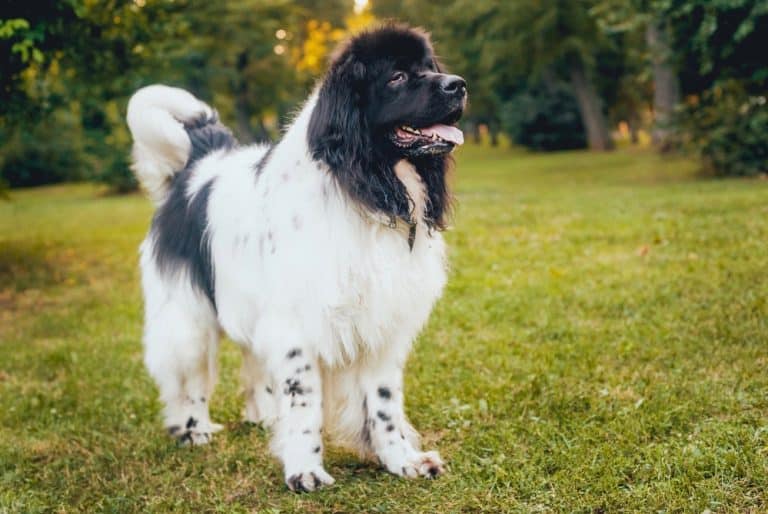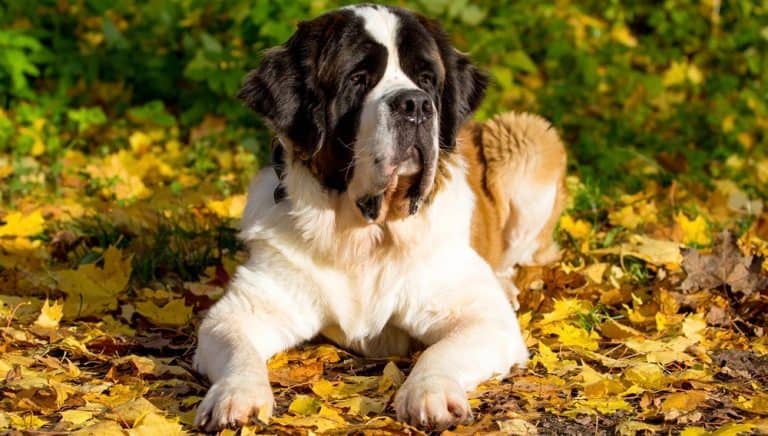Great Dane Lifespan – How Long Do Great Danes Live
The Great Dane lifespan has been a subject of research for a while now. This is no surprise because Great Danes are a loved breed because of their beautiful and brave personality. Many dog owners want to know how to increase their lifespan.
They are referred to as gentle giants and like many other large breed dogs, they tend to live shorter lives, even with proper care.
Great Danes are adored internationally, and they are one of the world’s tallest dogs. Their size may call for extra maintenance on your part, but they are totally worth it.
Perhaps what makes them one of the best breeds out there, is their loyalty and willingness to please their owners. This makes them trainable and adaptable to most households.
Because of their size, they would be paired best with families that have a large yard that is fenced, so that they can run around and be free. In apartments, they would have to be walked regularly outside.
One thing about Great Danes, is that they don’t seem to be aware of their size, so they may knock things over and seem threatening to some.
But this does not change their loving nature and ability to be a guardian and friend to their owners.
Great Dane Life Expectancy
Great Danes have larger-than-life personalities as well as frames, but their life spans are terribly short.
They usually live for about 8 to 10 years on average but some of them only live for about 6 to 7 years. However, occasionally there are a few Great Danes that have lived until they were 12 years old.
Smaller dogs are known to live for twice that amount of time. This has led some to the conclusion that dog size is a good indicator of lifespan and longevity in general when it comes to dogs.
And this phenomenon is paradoxical to what actually happens in the animal world because usually, the animals that live the longest are the larger ones such as whales and elephants.
On the other hand, smaller animals like rodents have a much shorter life span. But with dogs, this is different because larger breeds have shorter life spans.
Researchers have done their best to uncover the reason for this limited lifespan in larger dogs. They have a few theories, but they have noticed that larger dogs seem to age faster than smaller dogs do.
How Can I Extend The Life Of My Great Dane
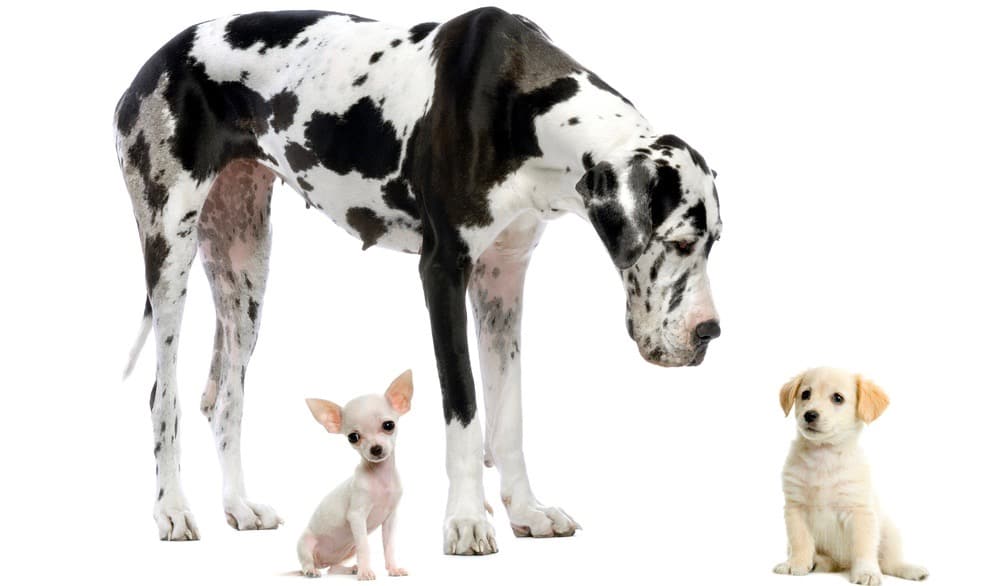
Feed Him Healthy Diet
When it comes to longevity, one of the most important things that you can do for your Great Dane is to feed him healthy food.
This is probably the most important thing that you can do for your Great Dane because the food he consumes directly affects his quality of life and longevity.
A healthy eating schedule is essential at an early age for the best results. They require a special diet that would allow them to not grow as fast.
According to the American Kennel Club, a Great Dane’s diet should be one that is nutritious but steers clear from overnutrition.
This is because certain vitamins and minerals tend to lead to faster growth which is what we are trying to avoid.
You should do your best to make sure that your great Dane’s diet is low in fat, calcium, phosphorus, and vitamin D. Nonetheless, make sure that he receives ample protein as well as fiber.
The best diet should help your dog not grow too fast because rapid growth leads to musculoskeletal diseases including hypertrophic osteodystrophy, osteochondrosis, and dysplasia.
It is also important to keep in mind that obesity should be avoided at all costs if you would like to prolong your dog’s life because it comes with a host of health risks.
You can combat obesity by implementing a proper structure for feeding your Great Dane with the best food you can get your hands on.
Exercise & Training
Crucial to the longevity of a Great Dane, is a sufficient amount of exercise. You can make this fun by scheduling various physical activities that both you and your dog can partake in.
These can include walks, runs, hikes, and overall playtime. It is a good thing that great Danes aren’t that picky when it comes to the type of exercise they do, as long as they get to spend time with their favorite human.
Exercise will help to keep your Great Dane in shape and will also assist with reducing the likelihood of heart disease. When you get the blood pumping it is beneficial for health overall health as well as creating strong bones and muscles.
You should ensure that your great Dane has proper training so that they can know what is expected of them and not get into as much mischief.
You can complete this training yourself if you have the knowledge, or you can employ the services of a qualified trainer.
Part of your dog training is also having him socialized properly. This would mean less embarrassment for you because your dog will know how to act in front of the company. Have this training done at a young age for the best results.
Visit The Vet Regularly
Regular visits and checkups with your veterinarian will place you leaps and bounds ahead when it comes to increasing your Great Dane lifespan.
This is because your veterinarian will be able to tell you of any diseases your Great Dane may be developing. If these diseases are caught early, then your great Dane would have a higher chance of survival.
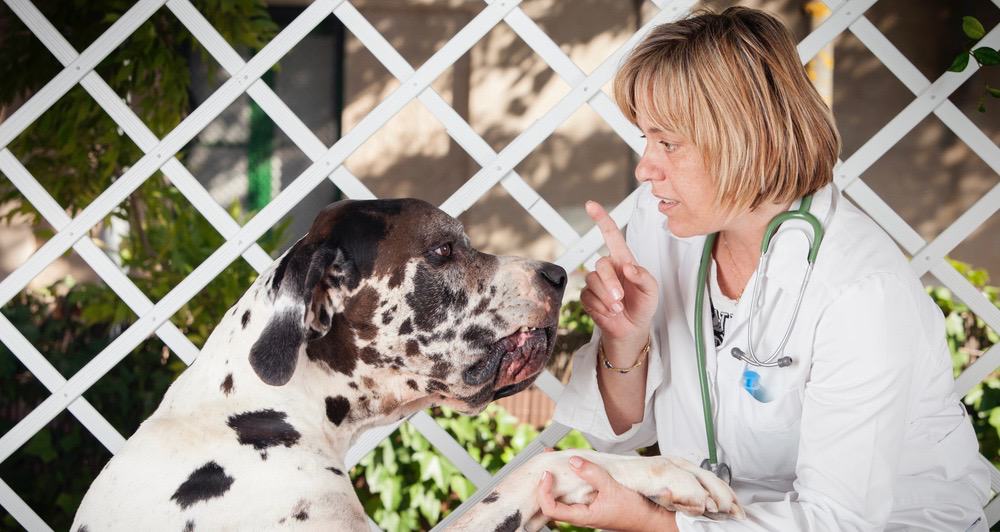
Remember even though they die of old age, there must be some type of disease that makes them suffer in the end. Avoiding these diseases will give your great Dane a better chance of survival.
Veterinarians can also tell you what you need to do for the betterment of Your Great Dane in the area of his diet.
Bloat is a serious issue that is difficult to avoid and affects Great Danes in particular. Your veterinarian can give you the best advice on how to deal with this.
Also allow your veterinarian to provide you with the best vaccines for your dog. Give you the best advice on your feeding and exercise schedules as well as any other condition your dog may suffer from.
Breeding
In our efforts to try to get the Great Dane you to have an increased life span there are a number of things that we can do which are proven to work.
However, one of the very first things that you can do as the owner of a Great Dane is to ensure that he comes from a responsible breeder.
There are a few things that you should look for in a responsible Great Dane breeder. You will know by the type of records that he keeps, a health history is important, and a responsible breeder will have one.
The breeder should have a variety of tests done on the Great Dane puppy with the results to show as proof. These tests are conducted for eye problems, autoimmune thyroiditis, hip dysplasia, and heart disease.
Why Do Great Danes Have Such A Short Lifespan?
Great Danes are not alone in their propensity for shorter lifespans because other large breed dogs have the same problem such as Irish Wolfhounds, and Bernese Mountain Dogs. Small breed dogs like Chihuahuas or Yorkshire Terriers outlive these on average.
We also need to consider that dogs who live in the first world usually have longer lifespans than dogs who do not.
This is partly because of the first world access to Veterinary Care, but this does not stop Great Danes from having much longer lifespans.
Many purebred Great Danes are lost because of the many diseases that affect them even before they can meet their maximum average age.
Great Danes in First World countries also have better access to medications that they can take for any illnesses that affect them.
They can also visit a physiotherapist and have groomers that would ensure their upkeep and health. There is no clear explanation as to why Great Danes have a shorter life span.
Do Mixed Great Danes Live Longer Than Purebred Ones?
There are numerous studies showing that on average, mixed breed dogs have a slightly longer than mixed breed dogs and small breed dogs live longer than the large breeds. It is well known that Great Danes have one of the shortest median lifespans.
Even though mixed breeds tend to live slightly longer, when it comes to Great Danes the mixed do not have significantly longer life spans than the purebred Great Dane.
What is important to remember is those lifestyle choices are most important for prolonging your Great Dane life expectancy.
Make streets are more common than we realize since it is practiced regularly by breeders. This is why how many dog owners have the DNA test done to ascertain The exact lineage of their dogs.
Great Dane Age Groups Explained
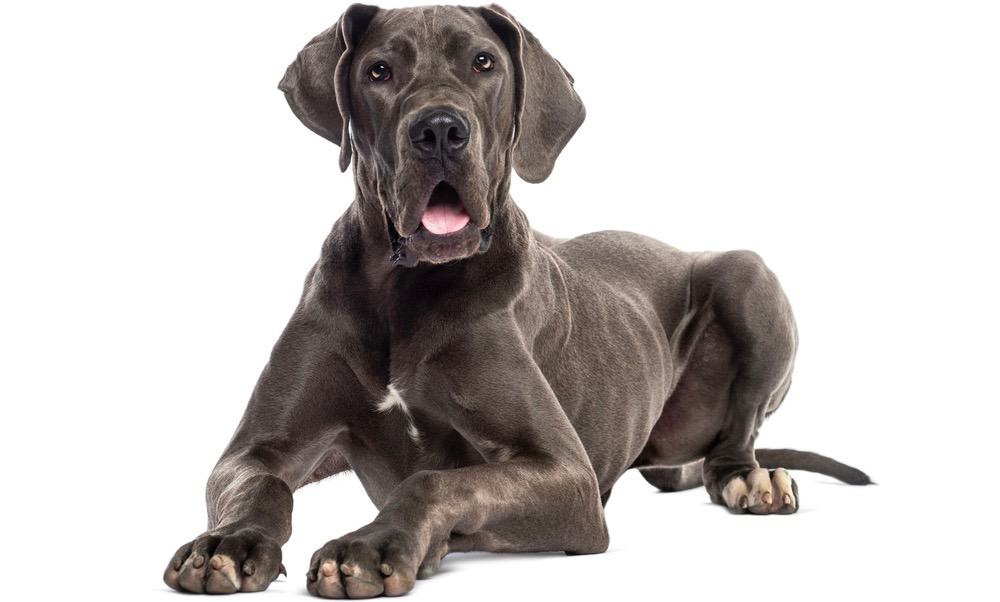
Puppy
Your great Dane puppy will be small and cute but do not let that fool you because they grow to the enormous breed that we love.
Many people enjoy this time the most because Great Danes are so playful loving. They are usually 42 cm tall, weighing about 39 lbs.
Juvenile & Teenager
In the juvenile and teenager stages, your great Dane would have acquired about 80% of his body mass and height.
They can get to about 75 cm tall and about 127 pounds. Training should have already started but at this stage, it is not too late.
Adult
When your great Dane is fully grown you can expect him to be approximately 80 cm or 31 inches in height.
They usually weigh about 70 kg or up to 154 lb. Your dog doesn’t grow very much after this but there may be some changes to his body
Senior
As a senior, your Great Dane will face physical and mental decline. You will notice that your great Dane is less active. You should adjust his diet to compensate for this change because you need to avoid obesity at all costs.
Does Neutering & Spaying Affect Great Dane Lifespan
Male and female great Danes that have not been spayed or neutered tend to have shorter life spans than those who have.
This is because spaying or neutering reduces the rest of certain cancers that affect a reproductive organ.
For example, female great Danes that have been spayed do not develop uterine diseases like pyometra along with breast cancer or uterine cancer.
When male dogs are neutered they also have a reduced risk of developing certain cancers but neutering should not be done too early because it could affect growth and development.
When growth is affected, the joints are also impacted leading to joints problems. Your veterinarian can advise you on the best time to have your dog spayed or neutered.
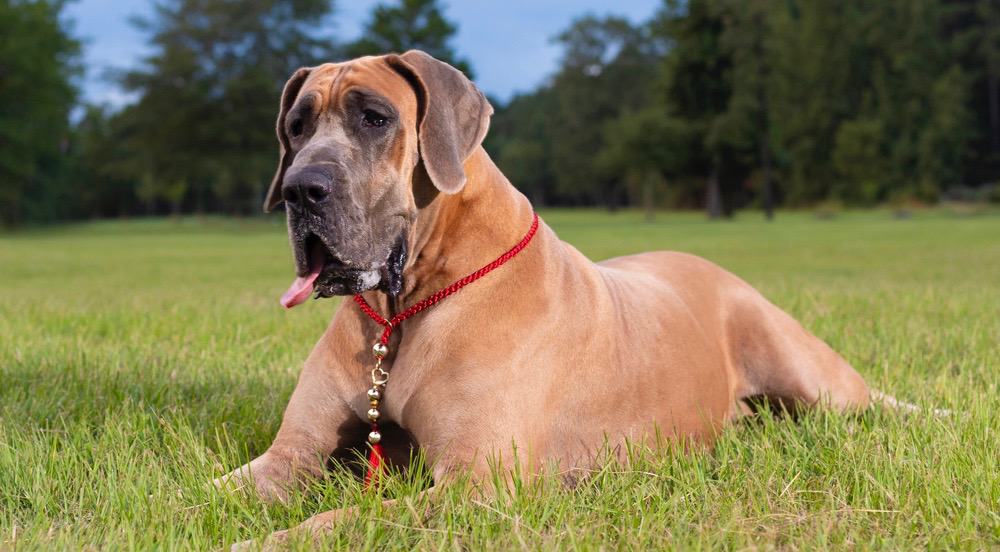
Great Dane Common Health Issues That Can Affect Their Lifespan
There are a few health issues that affect grades things in particular leading to a shortened life span. these diseases are listed here:
Bloat
Great Danes are known to have a higher likelihood of bloating and this may sound harmless, but it is a fatal condition for Great Danes because the stomach causes the blood supply to be cut off. If they are affected by bloat, they often get it again in the future.
There is a procedure that veterinarians use to avoid bloat. If bloating happens too often, your veterinarian may use the taking procedure to prevent bloating in the future.
You can do your part to prevent bloating by having a disciplined schedule where your dog only eats at prescribed times. Do your best not to exercise right after meals.
Cardiomyopathy
Cardiomyopathy affects great Danes, so this is another thing that you need to look out for. You can help to prevent it through diet and reducing the amount of fats that your Great Dane consumes.
You could also have a disciplined exercise regimen so that cardiomyopathy will be less likely. It is a condition where dogs have an enlarged heart muscle.
Joint & Bone Disease
Joint and Bone problems are expected when dogs have large frames. These problems come in the form of osteoarthritis and hip dysplasia.
Still, you should know that joint problems are not going to just come on your Great Dane all of a sudden. These conditions are slow-building and happen over time. They are most prevalent when your dog is in adulthood.
And there are a few treatments for this condition including glucosamine which is a joint supplement that is used to help dogs with joint problems.
Your veterinarian will be the best person to prescribe treatments for your Great Dane. You can assist by ensuring that proper diet and exercise are implemented so that joint problems will be alleviated.
Thyroid Problems
Unfortunately, Great Danes are also susceptible to thyroid problems. your veterinarian can assist you with monitoring and regulating the medication that is needed to treat this condition.
Your veterinarian will draw a blood sample from your Great Dane so that the proper test can be done.
Great Dane Lifespan FAQs
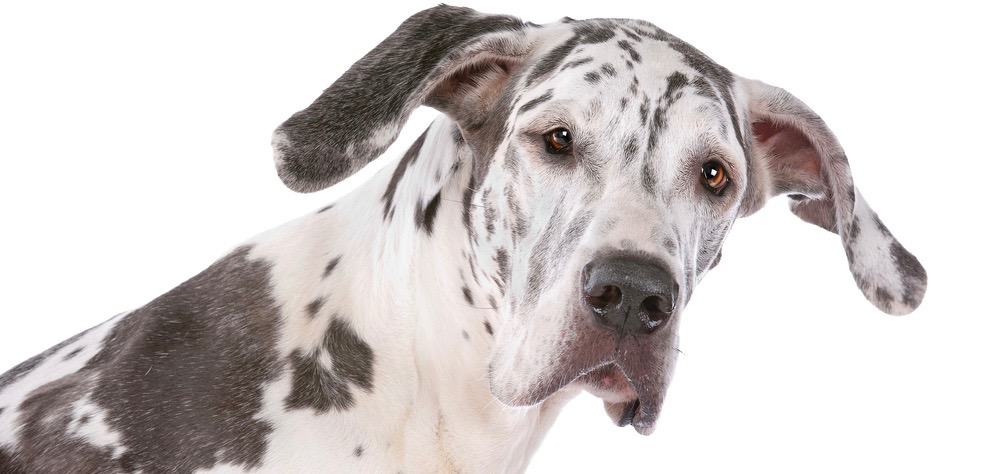
What Is The Longest Living Great Dane In The World
The longest-living Great Dane in the world is one called Pirate Tho lived to be 11 and 1/2 years of age. The longest living Great Dane was also the tallest Great Dane ever recorded.
However, there was another report of a Great Dane called Stella who lived to the ripe old age of 13 years.
Does A Great Dane Live Longer Than An Irish Wolfhound?
Irish Wolfhounds are large breed dogs that have a slightly higher lifespan than Great Danes. They can live for about 13 years of age, but those cases are rare.
It is said that approximately 9% of Irish Wolfhounds will make it until they are 10 years olds. They tend to suffer from a host of illnesses including cancers, bloating, and cardiomyopathy. This is very similar to The Great Dane.
Final Words
Even though Great Danes have a shorter life span than other dogs do, there are a few measures that you can put in place to counteract the short lifespan.
You may want to switch to a raw diet since this has been proven to be the most effective diet for Great Danes.
There is some great kibble out there on the market but many of them contain Sellers and harmful ingredients that will reduce the lifetime of your Great Dane.
As the dog owner, you should do your best to make sure your great Dane is comfortable and happy. This includes grooming as well as ensuring that he has proper nutrition and accommodation.
Take your Great Dane on daily walks and have him trained for his best interest as well as yours.



